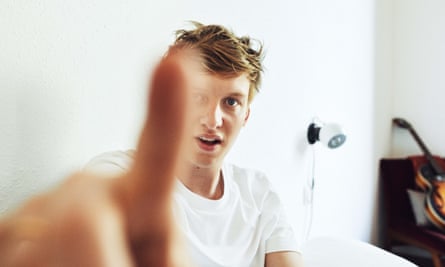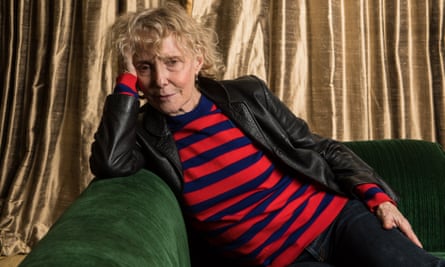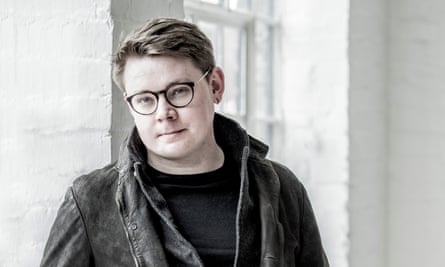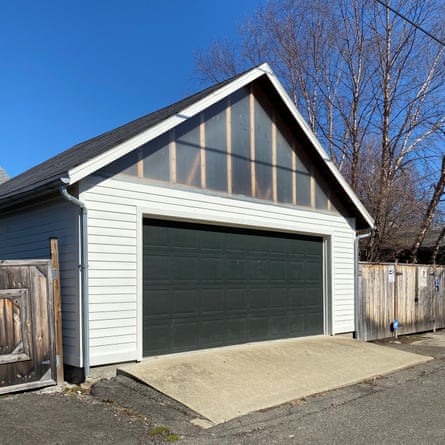George Ezra, musician
I’ve found a way to enjoy the isolation. I’ve got a routine going. Bizarrely, I’ve been more relaxed about my OCD when it comes to micromanaging my time because it’s taken out of my hands.
With previous records I relied on going on a journey for inspiration. The physical limitations have stumped my creativity a little bit. Every time I tried to write about this period – I’ve given up now – it all just sounded so meh. Maybe I need to give it some time.

I’m in a fortunate position because I’ve got half a record written. If isolation had arrived a month into writing, it might have had a bigger effect. My last record is all primary colours and sunshine. This next record is a little earthier.
On my last record, there were lots of songs about escaping and dreaming. What I was forced to learn, in my own life, is that when things arrive, I’m better off confronting them. I feel in limbo between being a boy and a man. It’s interesting to be in a transitional period where it’s almost as if I can see either side of the tightrope. Those questions are coming up in the songs: who am I, why am I, what am I to do?
I remember writing sixth-form poetry and trying to force myself to confront things like that, but it never felt natural. Whereas now, it seems like a good use of my time to be thinking about them and not expecting to come out the other side with a eureka moment.

Es Devlin, artist and set designer
I make physical structures, but now the question is, can you make it digitally? So much of what I was doing was an assault against the glowing portal of your phone or computer. Suddenly I’m not discouraging my children, I’m not taking their phone off them, because it’s now the window to culture, to friendship, to everything.
Before all this happened I was working on a maze based on the structure of a human lung, which looks like the branches of a tree. I did a piece in 2016 called Mirror Maze in a warehouse in Peckham. My thought was to make a piece like that where people arrive in groups of 12, they watch a film and then walk through it, into a maze made of mirror. At the end you look across a sea of water and see reflections of yourself with these bifurcating patterns projected on to you, so you begin to understand that these tree-like structures are inside us as well as defining the way we move. We’re in a holding pattern now about when it can be physically realised. People won’t have the confidence to visit these works – or any of the other collective audience works that I make – until there’s a coronavirus vaccine.
In many ways we needed this: look at the way we can operate without getting on a plane, the way we can spend time with our kids … I’ve never recently spent so many days in one place. It’s a calibration between how long, how different and the casualties along the way.
When you tune into the larger vibration of what’s going on it’s hard not to make work that responds to that. That’s the work we need to make.

Claire Denis, film-maker
Until the middle of last month, I was in Los Angeles preparing my new film. There was no “stay in place” there then, but people were afraid. Our hotel was almost empty and, one day, I realised they were no longer serving breakfast, only coffee, and that the people must be out of a job. That frightened me.
On 15 March, the Paris lockdown began and Air France told us to come home. Now I’m in my apartment and it’s very sunny and warm and we can open the windows and sit and read and smoke in the yard. I am privileged. But in New York it’s very difficult. There, they are in trouble. I worry about Louisiana. I was in New Orleans after Hurricane Katrina and remember they swore the city would bounce back. That wasn’t true. Now, 70% of the dead there are black. In situations like this, if you’re poor, you are more or less condemned.
When I came home, there was a panic over whether there would be enough intensive care beds, but in fact the French healthcare system is not the worst. I live next to a hospital and they did manage to take everyone. Yet there was some shock here to realise that being lucky in our infrastructure is not the same as being prepared. We were late with that. And there will be a huge crisis after this immediate crisis. When I go out to buy bread, I see shops that may never open again.
I hope France’s socialist history has given us a degree of philosophical preparedness. After the second world war, laws were enacted to help the country rebuild its healthcare and education and unemployment. We were less concerned about returning to industry and more about giving social dignity to the people. To be poor or out of work is not something shameful here. Likewise in Greece, where fewer people are sick.
At the moment, I’m doing a lot of reading, working on the film I still hope will shoot in the autumn, and watching old movies. Last week I saw a lot of Shohei Imamura; just now it was the Belmondo film L’Homme de Rio, which I find so charming. What I see is random – these aren’t decisions about how to help survive.
But I’m not drawn to fiction about comparable situations. I want to live in the present: to have food and a roof over my head and to know my family is OK. To write about what we are going through now without knowing the consequences isn’t something that interests me. It would be stupid.
Outside might look like a sci-fi film from my window, but that’s not the whole world. They may suffer more; I don’t know. I’m not ready to think about it.

Mark Simpson, composer
While house concerts, live streams and archival footage are now readily available for free online, this period has confronted the classical music industry with some profound existential questions: what does it mean to have an online/virtual self versus a real self? Can music and video be combined to create something that is completely new and relevant for our time? What takes the online self beyond the realm of mere self-promotion? Can we work with video artists and web designers to explore the texture of the digital being? What effect will it have on the way we monetise our profession if everything is now expected to be free? Are we so accustomed to the state of being in a late-capitalist society that the notion of silence and stillness is alien to us? What meaning does music have in this world?
As a performer I’ve had concerts cancelled, but as a composer I’ve luckily not been directly affected yet. These last few days I’ve been commissioned to write a short piece for violin and piano for Elena Urioste and Tom Poster to perform online – the couple are posting daily performances on Twitter #UriPosteJukebox. Does it describe these strange times we’re living in? Not directly, but it has a kind of yearning quality, and an ambiguous harmony that alludes to our current mood. I never think that my music directly responds to world events, but subconsciously, naturally, it’s in there. I’m also writing a violin concerto for Nicola Benedetti – commissioned some months ago, but as I write it now I find a sense of claustrophobia and anxiety has crept into some of the material. I want to find a way to try and express that shared feeling of anxiety with a look toward a more hopeful future.

Stephen Shore, photographer
I live 100 miles from New York City, and life in a small town is very different during this period. There’s a small city near me called Hudson. On nice days I go there and photograph – I can walk down the street and not get within 100 feet of another person.
So my photographic activity hasn’t changed much. But the work is recontextualised. I recently posted pictures of the first signs of spring. They’re very much like what I posted this time last year, but I’m getting comments about how they symbolise rebirth and hopefulness. They’re reminding people that life goes on, that certain things have their own time clocks and cycles.
I’ve done some indoor photography myself – one wearing gloves, another where I’m using hand sanitiser. I’ve started a series of posts about what I’m watching on television because I’m doing more of that now. But I’m not sure I’ve learned anything in particular from this period. My approach remains the same as it was in 1972, when I would travel the country, see a meal in front of me and think, “This is what I’m looking at”. Now it’s hand sanitiser. But I’m still just paying attention to what I’m looking at and seeing it as a possibility for a picture.

Ruth Kenley-Letts, TV producer (including The Casual Vacancy)
In spite of the lockdown, the TV industry can still partially function: producers, directors and writers continue to develop new projects from their kitchens, while post-production can largely be done remotely.
When it comes to filming new content though, everything has halted. In my case, that’s meant suspending pre-production on a new ITV show, only a few weeks before filming was due to begin.
TV productions are big operations with hundreds of people on the payroll – all freelance – so worryingly most won’t receive government grants until June. We’ve managed to furlough as many crew as possible, but others have been given two weeks notice.
Shutting a production down is expensive, and many companies will have to absorb the losses. The financial implications will reverberate throughout the next few years: how many people we can employ; how many scripts we can commission. But TV is a robust industry, it’ll bounce back.
When things pick up again productions will start all at once, so it’ll prove almost impossible to get previously assembled crews back together. That’s a practical worry for someone doing a job like mine, but it should create a vital flurry of work for thousands of people.
Quite how all this informs what gets commissioned remains to be seen, but what audiences want to watch in a post-Covid world might well be different. In the meantime, social distancing lets us go back and watch what we missed the first time: shows that we loved can be watched again, and those that weren’t may get a fresh hearing.

Comments (…)
Sign in or create your Guardian account to join the discussion